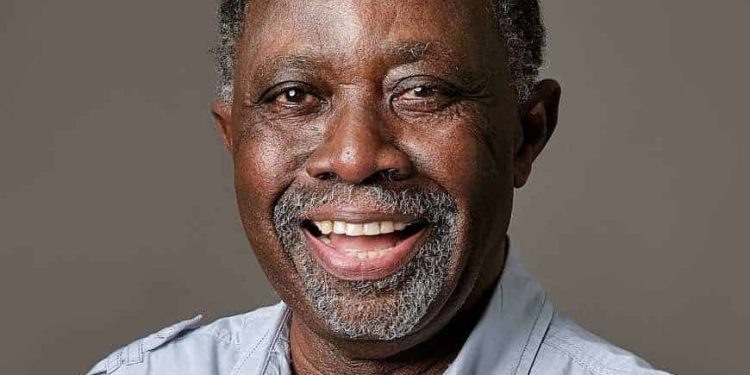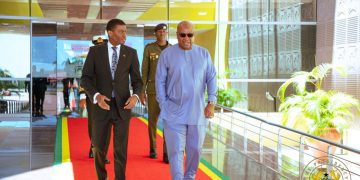Dr. K.Y. Amoako Calls for Development of Comprehensive Financing Strategy for Ghana at National Economic Dialogue
Founder and President Emeritus of the African Centre for Economic Transformation (ACET), Dr. K.Y. Amoako, has emphasized the need for Ghana to adopt a comprehensive financing strategy to drive economic transformation.
He made the remarks at the ongoing National Economic Dialogue (NED) at the Accra International Conference Centre (AICC).
According to Dr. Amoako, “Ghana needs a comprehensive financing strategy, one that effectively aligns different funding sources to our vision for economic transformation.”
He outlined three key pillars essential for such a strategy:
- A Ghana-Developed Finance Platform: This would coordinate the flow of government assistance, assess the progress of policy reforms and programs, and ensure resources are effectively utilized without misalignment or waste.
- Long-Term Financing Agreements: Dr. Amoako highlighted the example of Pakistan, where a bank has committed to providing $20 billion in financial support over ten years. He advocated for Ghana to pursue similar long-term agreements rather than relying on traditional short-term financial arrangements.
- Comprehensive Domestic Revenue Mobilization Plan: This plan should tackle illicit financial flows, harness remittances, and ensure a fair taxation system to support public services and investments for sustainable development.
Speaking further at the event, Dr. Amoako warned that Ghana faces recurring budget deficits and debt crises, which necessitate a fundamental shift in financing approaches.
“As we approach the conclusion of our 2017 IMF bailout next year, the fundamental question remains—will this be our last, or are we setting the stage for yet another bailout?” he queried.
He noted that Ghana has been under some form of economic program for 40 out of its 68 years since independence, underscoring the urgency of adopting sustainable financing mechanisms.
Illustrating the importance of external financing, he cited the $1.7 billion in support from the World Bank and the IMF aimed at subsidizing Ghana’s long-term energy sector. “External finance will remain a crucial element of our development for the foreseeable future,” he stated, adding that Ghana must rethink its mix of external financing and diverse resource mobilization efforts.
National Economic Dialogue Aims to Shape Economic FutureThe two-day National Economic Dialogue seeks to provide a platform for key stakeholders to engage in discussions on Ghana’s economic challenges and propose actionable solutions for sustainable economic growth. President John Mahama is expected to deliver the keynote address under the theme “Resetting Ghana: Building the Economy We Want Together.”
The dialogue aligns with President Mahama’s campaign pledge to promote inclusive decision-making on economic policies. It is expected to drive consensus and collaboration on key structural reforms necessary for economic revitalization.
Key stakeholders from the private sector, academia, public policy institutions, and civil society organizations will participate in thematic discussions focusing on:
- Achieving sustainable macroeconomic stability
- Promoting economic transformation
- Advancing infrastructure development
- Implementing structural reforms
- Ensuring private sector-led growth
- Restoring good governance and combating corruption
The outcomes of the dialogue are expected to inform policy decisions that will shape Ghana’s economic trajectory in the coming years.








